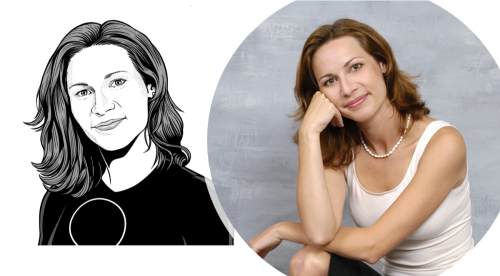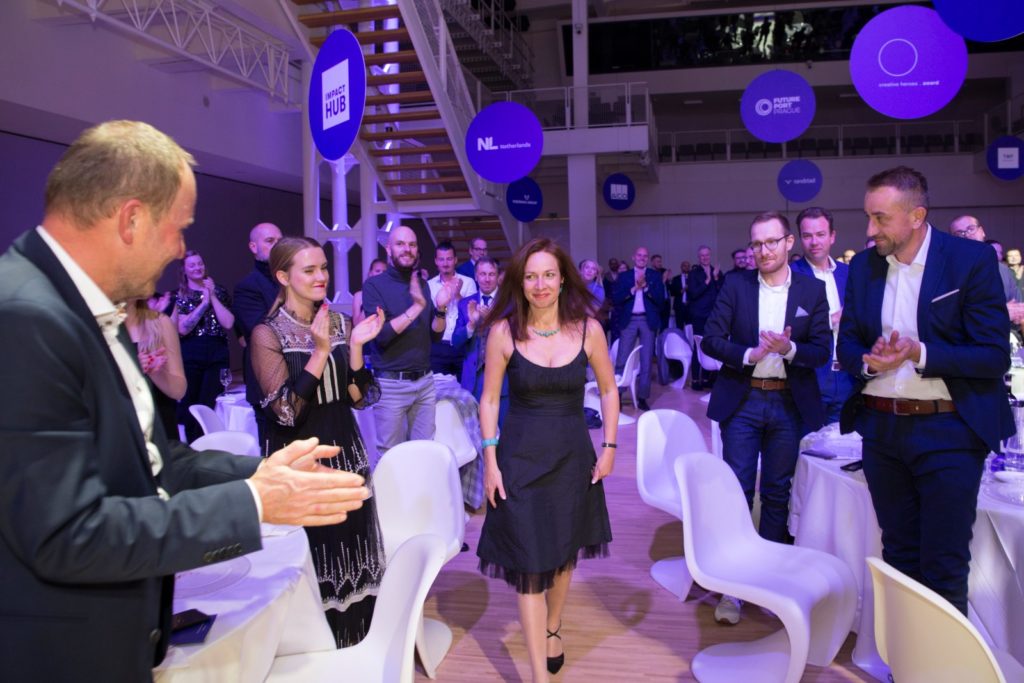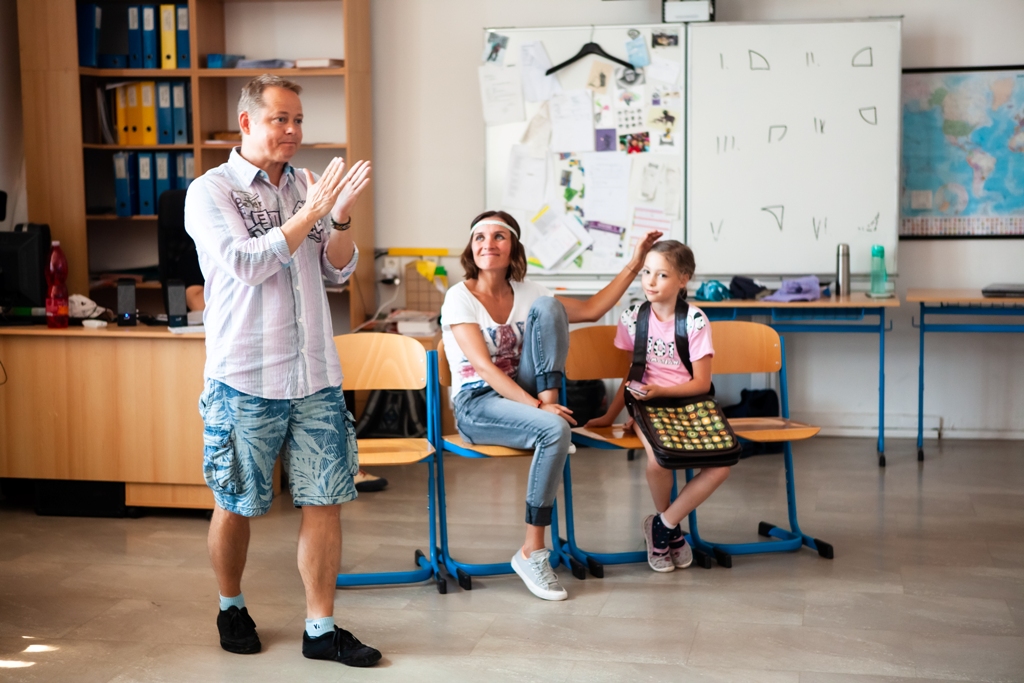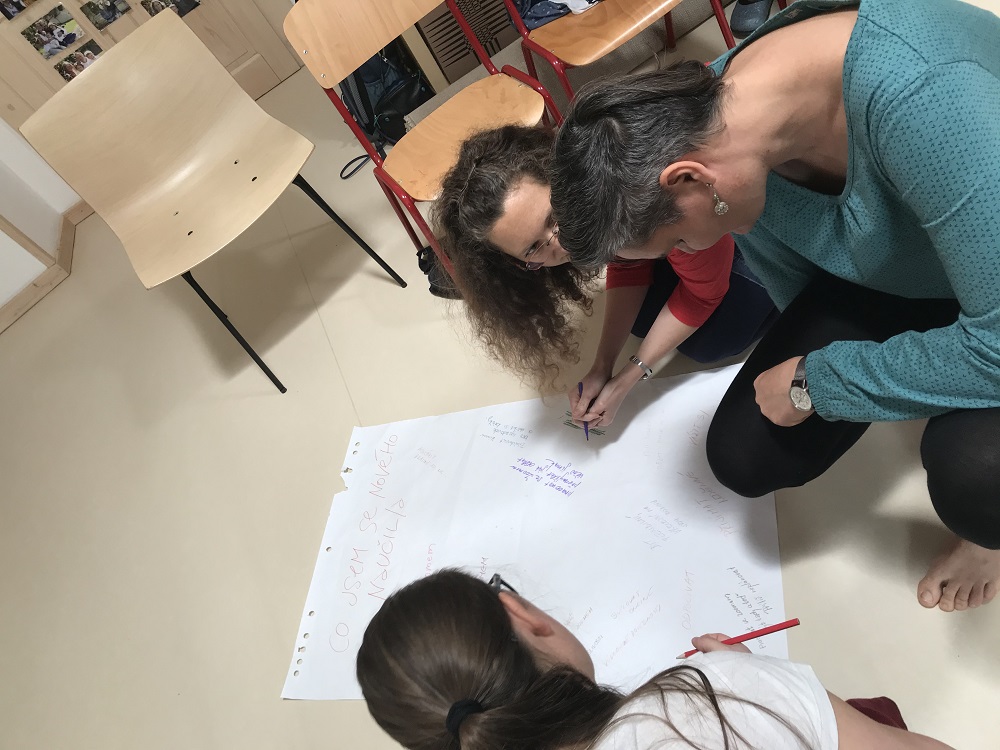
Jitka, your participation in the first edition of the Creative Heroes Awards Czech Republic was overwhelming and you won the audience by true devotion to your goal: the prevention of various socially problematic phenomena in children. What are you currently up to?
We are now mostly devoted to the topic of integration of Ukrainian children. For this program, we managed to obtain a grant from the Česká spořitelna Foundation, thanks to which we will be able to implement a total of 200 interactive programs in schools throughout the Czech Republic. These should help Ukrainian children to understand how their arrival is perceived by their Czech classmates, and at the same time make it easier for Czech children to understand the situation of Ukrainian children.
This is an extremely challenging topic, on the processing of which we cooperate with a number of professional partners, for example with the Locika Centre. As part of this program, we will also organize 25 seminars for pedagogues focusing on conducting classroom lessons on the topic of easier integration of Ukrainian children. I believe that the publicity associated with the Creative Superhero award also contributed to obtaining this support from the Česká spořitelna Foundation, and I am therefore very grateful for it.

That is truly rewarding to hear! Looking back at the Creative Heroes 2021, what does the Creative Superhero Award mean for you personally?
Personally, I see this award mainly as a great honor for our entire team, because our success certainly does not depend on just one person. A number of very interesting projects were nominated in the last edition of the Creative Heroes Awards, and each of them undoubtedly deserved recognition and admiration. The nomination itself made me extremely happy. The success in our category and then the overall victory was honestly a dream come true for me. But I understand it mainly as a big commitment for all of us in the Forum for the future. It was also very inspiring to see so many people together in one evening who are dedicated to meritorious and especially innovative work in companies and non-profit organizations. For me, the most valuable thing in all of this is probably the fact that we succeeded in a competition in which the commercial and non-profit sectors met. For a long time, we have been trying to change the perception of public benefit organizations so that they are not only understood as recipients of financial aid from the state, foundations or companies, but on the contrary as equal partners providing services that have irreplaceable value for society.
3. Let’s look into 2023 once again. Can you share with us what other projects you will focus on?
As for our current activities, in addition to the mentioned project aimed at integrating Ukrainian children, we mainly continue with other longer-term programs, such as O2 Smart School. We also cooperate with the Endowment Fund for Holocaust Victims on the performance ‘Anička's Story, or the Holocaust as a cautionary case from history’, which again tells the well-known story of Anne Frank in an interactive way.
By the way, the example of the mentioned "Ukrainian" project can be a good illustration of what I really enjoy about our work – the ability to immediately respond to current topics and bring your own ideas and solutions. I also consider the opportunity to cooperate with other partners to be valuable, when we can constantly learn something new from each other and pass on experience and useful contacts.



About the Forum for Experiential Education
The Forum for Experiential Education was founded in 2014. The main focus is on the use of experiential pedagogy techniques for the prevention of various socially problematic phenomena in children. The Forum has already staged more than 1,200 educational performances directly in classrooms at individual schools and in children's homes throughout the Czech Republic, in which almost 30,000 children and 2000 teachers have participated. The Forum for Experiential Education focuses mainly on the prevention of bullying, cyberbullying, violence and intolerance, on the fight against prejudices, on strengthening children's civic and social competences and on developing their media and financial literacy. In addition, they also organize workshops and seminars for teachers dedicated to how to create a safe environment in their classrooms, how to communicate with children about sensitive topics or how to take care of your own mental well-being. For schools, they also have more complex seminars focused on creating a safe environment in the assembly hall. Schools and teachers are increasingly interested in these programs, which is unfortunately evidenced by the fact that their work is becoming more and more demanding – due to Covid, the arrival of Ukrainian children and their personal existential concerns.